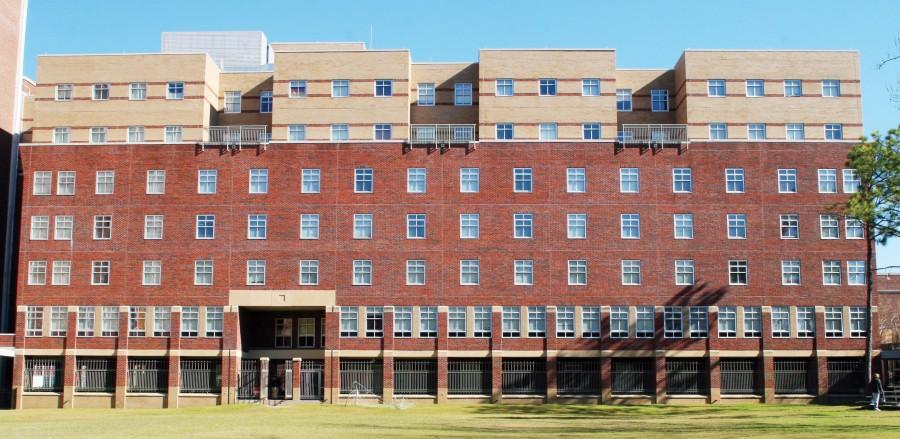Students who plan to live in Carrollton Hall next year will need to choose their roommate carefully.
Students will no longer apply as a group for residence, but will instead be chosen on an individual level.
“We wanted to address and make sure that it was fair for individual students, so that every student could compete for a room based on their own merits,” said Craig Beebe, associate director for residential education.
“We didn’t think someone should be de-prioritized just because they didn’t have a group of students to live with,” said Beebe.
Beebe noted that the same point system would be used to prioritize applicants: grade point average and class standing, plus bonus points for a clean disciplinary record and active involvement in Residence Council. The points for each student won’t, however, get added up for a group total as in past years.
“Our hope is that most students will still get to live with their group anyway. It just might be a little more of a roundabout way of them getting into a group,” Beebe said.
This will be possible, he added, because students who want to live together will most likely have a similar number of points. It will also allow students to create new relationships, he said.
Residential Life is changing the way rooms are chosen by creating an event called “Room Draw.”
Some students are unhappy with the change.
“I’ve met new people every year, but I wouldn’t want to meet them by force,” said Sergio
Lobo-Navia, philosophy junior. “It’s a great part of the freshman experience, but we’re no longer freshmen.”
Nick Courtney, philosophy junior, agrees.
“I have a roommate that I don’t really know, and to be honest, it’s kind of awkward. I think it’s as awkward for him as it is for any of us,” Courtney said.
“I think that the risk of creating situations like that throughout a residence hall and having a system that produces those situations, is antithetical to the community aspect that Jesuit schools pride themselves on,” he said.
Beebe asserted the necessity of filling up rooms in the current financial climate.
“Carrollton is not only our most popular building, it’s also our most expensive building, and we can’t afford to leave rooms sitting empty just because students don’t like that we might move somebody that they don’t know in,” said Beebe.
Students are also raising concerns about communal spaces that are part of Carrollton’s design, including living rooms and kitchens.
“You might not be able to trust these people,” said Kelsey Reid, psychology pre-med sophomore.
Lewis Baker, psychology junior, believes it will be a decisive factor in where students will live, calling the new approach a “tipping point”.
“I know around half a dozen people who are planning on living off campus,” he said.
Masako Hirsch can be reached at [email protected].

Carrollton Hall roommates Chelsea Ormon, business management sophomore, and music industry sophomore Bethany Wilde do homework in their residence suite. They are just two of many who will be affected by next semester’s residence policy that does not allow students to choose their suitemates. (Photo by Kevin Zansler/The Maroon)







